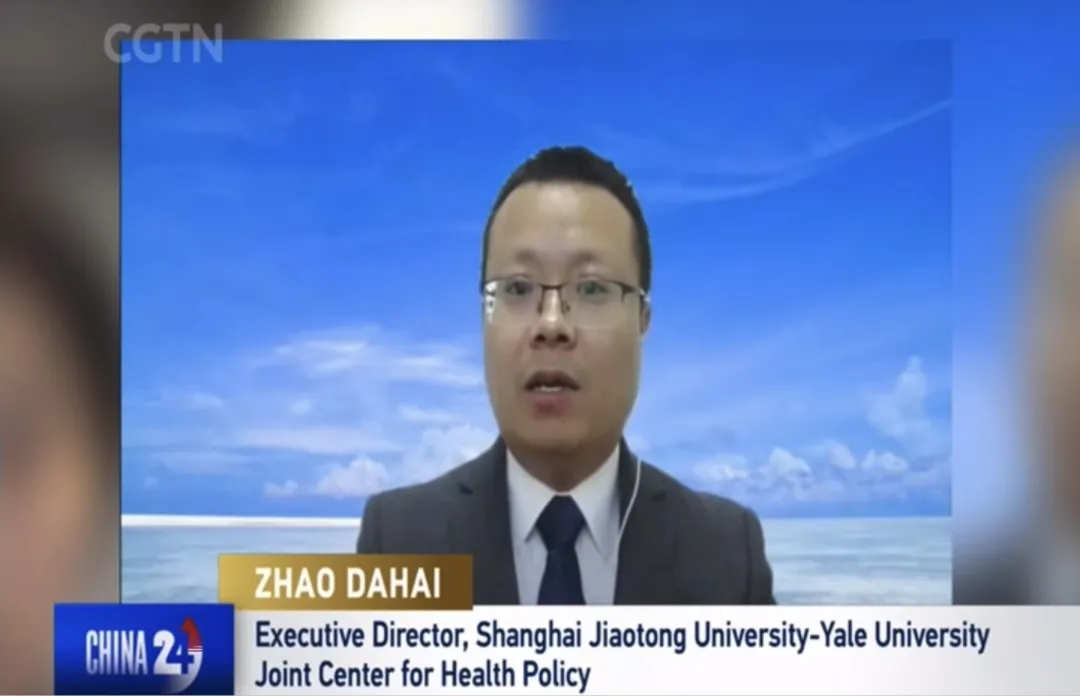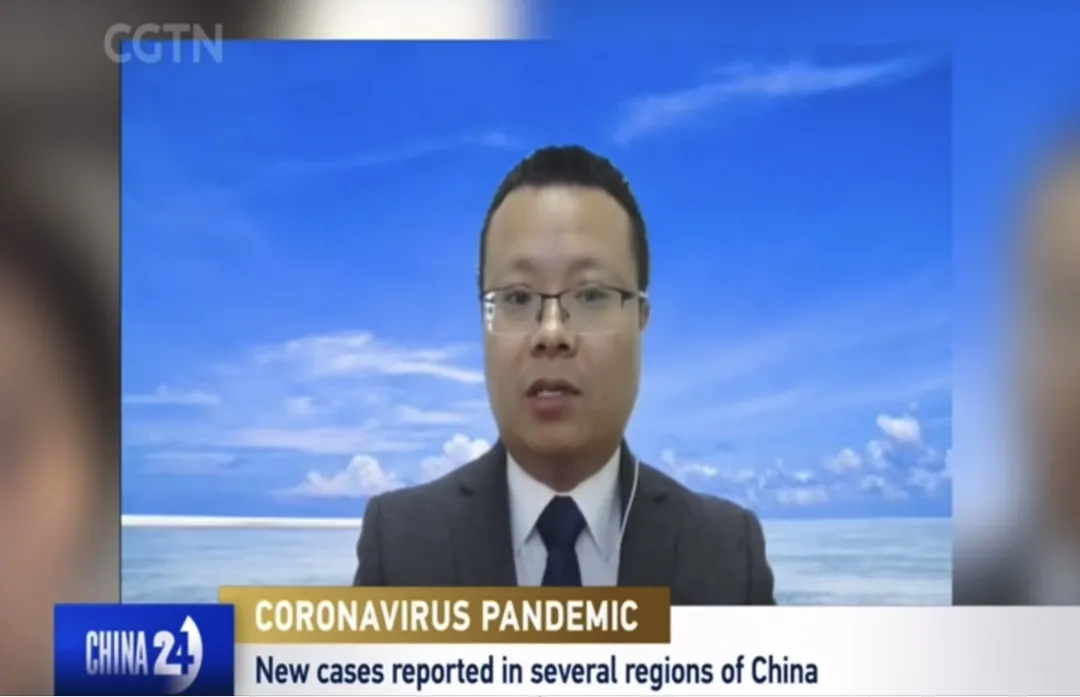上海交大赵大海接受央视专访:我国西北地区关联的新冠零星散在疫情将很快得到控制
上海交通大学国际与公共事务学院教授、博士生导师,上海交通大学-耶鲁大学卫生政策联合研究中心执行主任赵大海,自新冠肺炎疫情暴发以来,对于新冠疫情暴发、防控以及卫生政策第61次接受中央电视台专访,也是第103次接受央视、上视专访。2021年10月19日,赵大海在中央电视台英语频道《中国24小时》节目,就目前北京、甘肃、陕西等地区的散在零星新冠疫情局部暴发的相关话题进行了解释和评论。现将专访内容翻译并摘录如下。

主持人:经过两个多月的无本土传播感染后,北京现在又出现了一例新的本土新冠病例。有关部门表示,北京丰台区报告的病例是周一在宁夏回族自治区记录的确诊感染者的密切接触者。本周一,中国各地报告了9例本土新冠确诊病例。上周末,在西安市,5名游客检测呈阳性,而内蒙古自治区、湖南省和宁夏回族自治区也均有本土新冠病例的报道。请问您如何看待当前的疫情形势和未来的走向?
赵大海:由于这次疫情是由于一个小型旅游团感染了新冠病毒而导致的散在局部疫情,而且由于该旅游团和确诊的患者曾去过多所人群密集的旅游景点,在未来的几天可能还会有一些新的确诊病例被发现。然而,考虑到各级地方政府已拥有了完备的疫情防控的机制和经验,我相信本次疫情虽然在多个地区和多个省存在零星散在暴发,但均将在很短的时间内得到控制。与此同时,目前来看,这波零星散在疫情正处于疫情的最初阶段,也便于各地疫情的防控。

主持人:中国国家卫健委披露,中国大陆居民已接种了超过22亿剂的新冠病毒疫苗。从本月开始,全国各城市已开始提供加强接种。在新冠疫苗接种率如此高的前提下,您怎么看待秋冬季的疫情防控形势,以及公众如何来应对?
赵大海:中国居民新冠疫苗接种率已基本达到了80%,理论上讲,中国已通过新冠疫苗建立起了针对新冠病毒的免疫屏障。然而,新冠疫苗的保护效力在新冠病毒变异之后难免出现降低。因此,在秋冬季到来之后,各级政府和公众都不能因为已建立起了理论上的免疫屏障或已接种了疫苗而掉以轻心。公众应继续保持新冠疫情防控的科学生活方式。比如,出门戴口罩,尽量不参加大型集会等。
供稿者:国务学院
日期:2021年10月20日
Dahai ZHAO’s Exclusive Interview with CGTN: Sporadic infections in northwest China will soon be brought under control
Dahai Zhao, a doctoral supervisor at the School of International and Public Affairs of Shanghai Jiao Tong University and Executive Director of Shanghai Jiao Tong University-Yale University Joint Research Center for Health Policy, has been interviewed by CGYN for the 61st time (the 103st time by CGTN / ShanghaiTV) since the COVID-19 pandemic. On October 19, Zhao commented on sporadic local outbreaks of COVID-19 in Beijing, Gansu and Shaanxi provinces on “China 24” of CGTN.
Anchor: After more than two months of no locally transmitted infections, Beijing now has a new homegrown coronavirus case. Authorities said the case reported in Beijing's Fengtai district was a close contact of a confirmed infected person recorded on Monday in Ningxia Hui Autonomous Region. On Monday, nine local confirmed cases of COVID-19 were reported across China. Five tourists tested positive in the city of Xi 'an over the weekend, while the Inner Mongolia autonomous region, Hunan province and Ningxia Hui Autonomous Region have also reported local cases. What is the current situation and future direction of the epidemic?
ZHAO: Given that this is a sporadic outbreak of coronavirus infection in a small group of tourists, and that both the group and the confirmed cases visited a number of crowded tourist sites, it is likely that there will be a number of new cases in the coming days. However, considering that local governments at all levels have complete prevention and control mechanisms and experience, I believe that although there are sporadic outbreaks in many regions and provinces, they will be brought under control in a very short time. At the same time, at present, the sporadic epidemic is in the initial stage of the epidemic, which facilitates the prevention and control of the epidemic.
Anchor: The National Health Commission of China disclosed that residents on the Chinese mainland have received more than 2.2 billion doses of Coronavirus vaccines. Starting this month, cities across the country have begun offering booster vaccinations. With such a high vaccination rate, what do you think about the epidemic prevention and control situation in autumn and winter and how do the public respond?
ZHAO: The vaccination rate of Chinese residents has almost reached 80%. Theoretically, China has established an immune barrier against the coronavirus. However, the protective efficacy of the COVID-19 vaccine inevitably decreases after the Coronavirus mutation. Therefore, governments at all levels and the public should not be complacent because they have established theoretical immune barriers or have been vaccinated after the fall and winter. The public should continue to follow a scientific lifestyle of COVID-19 prevention and control. For example, wear a mask when going out and try not to attend large gatherings.
Contributor: SIPA, SJTU
Date: October 20, 2021

